May 30, 2025 | 19:36 GMT +7
May 30, 2025 | 19:36 GMT +7
Hotline: 0913.378.918
May 30, 2025 | 19:36 GMT +7
Hotline: 0913.378.918
Nghien Loan market is one of the markets with the largest trading volume of buffaloes and cows in the Northern region, with an average of over 1,000 cows per session.
The market is held every five days. Traders transport buffaloes and cows from Tuyen Quang, Ha Giang, Thai Nguyen, Bac Giang, Cao Bang, Phu Tho, Yen Bai, and Nghe An provinces for trading.
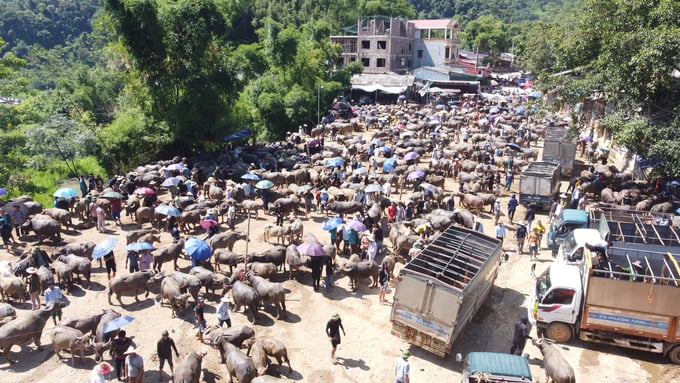
Nghien Loan buffalo and cow market (Pac Nam district) is always overloaded. Photo: Ngoc Tu.
For a country with a long history of wet rice agriculture like Vietnam, buffaloes and cows are significant livestock. Therefore, since ancient times, famous buffalo and cow markets have been formed, such as U market (Nghe An), Ban market (Thanh Hoa), Bac Ha, Cai Cau (Lao Cai), Tra Linh (Cao Bang)... However, Nghien Loan Market (Pac Nam district, Bac Kan province) is unique because it retains unique cultural features and has the most significant number of buffaloes and cows sold each session in the country.
The buffalo and cow market in Nghien Loan commune, Pac Nam district, Bac Kan province, is located in a valley in Dinh and Khuoi Un villages, about 500m from provincial road 258B, so it is very convenient for traveling, gathering goods, and trading, transport.
This is a critical wholesale buffalo and cow market in Bac Kan province and the entire Northern region. Most of the buffaloes and cows sold in the market will be brought to many provinces and cities such as Thai Nguyen, Hanoi, Nam Dinh, Lang Son... December is the busiest market because people buy meat for Tet. In many sessions, the number of buffaloes and cows traded reached thousands.
To get to the market, traders in the provinces transport buffaloes and cows by car through many national and provincial highways, so checking the origin and safe management of animal diseases is very difficult.
At Nghiem Loan market, buffaloes and cows are currently priced well. A big, fat buffalo, 3-4 years old, can be sold for nearly VND 40 million. Depending on how big or small the animal is, the selling price is different. For example, a one-year-old calf costs over VND 10 million. Often, local people come to the market to buy calves or skinny buffaloes and cows to fatten so that they can sell them for profit in the following market sessions. However, some people come to this market to choose to buy buffaloes and cows for immediate use in farming and reproduction.
Mr. Le Tuan Mau, quarantine officer (Department of Livestock and Veterinary Medicine of Bac Kan province), said that if not strictly controlled, the risk of spreading and spreading diseases at the market is substantial. Currently, before cattle enter the market, they will be inspected by the market management board and veterinary staff. During transactions, shippers wishing to transport goods out of the province will be issued a quarantine certificate.
To be granted an animal quarantine certificate, after clinical examination, if there are no signs of disease, they will be sprayed with disinfectant and transported to another province.
However, in reality, there are also shortcomings. According to regulations, animals and animal products on the list must be quarantined when transported out of the provincial area; intra-provincial transportation is not required.
A longtime trader at Nghien Loan market said that after buying and selling, it is difficult to determine whether the goods are transported within the province or outside the province. It is possible that the owner of the goods reports shipping within the province but then transports it to another province. This is also a loophole that can easily be exploited, making epidemic prevention difficult.

Examination of cattle at Nghien Loan market. Photo: Ngoc Tu.
To prevent the disease from spreading to buffaloes and cows, Bac Kan province has just issued a plan to tighten animal disease management at Nghien Loan market.
Accordingly, cattle transported to the market must be clinically examined, and the owner of the goods must present quarantine records according to regulations. For buffaloes and cows in the province, a valid vaccination certificate is required.
For livestock coming from other provinces, a quarantine certificate is required to transport livestock. In cases with no quarantine records and vaccination certificates, they must be quarantined, monitored, and vaccinated with additional vaccines before being allowed to trade.
When detecting cattle showing signs of suspected dangerous infectious disease, the market management board coordinates with the local veterinarian to make a record, immediately isolate them, and do not slaughter or, buy or sell them.
When the locality announced a dangerous infectious disease epidemic for livestock, the district People's Committee directed the temporary suspension of buying and selling activities of buffaloes and cows at the market.
This new regulation also raises epidemic prevention at Nghien Loan market, requiring cleaning disinfection after each market session, and animal quarantine areas must be periodically disinfected at least once a week.
The buffalo and cow trading area at Nghien Loan market must have measures to collect and treat wastewater and waste to ensure disease safety. The market management board must build a place to keep livestock suspected of having dangerous infectious diseases.
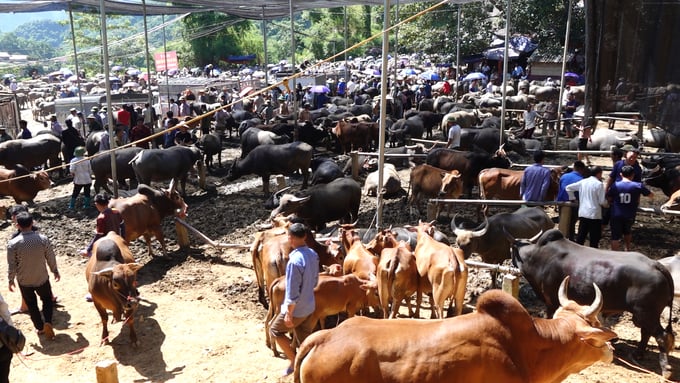
Due to overload, hygiene and disease prevention at Nghien Loan market are difficult. Photo: Ngoc Tu.
To meet new regulations, in 2021 Nghien Loan market has been invested in upgrading and expanding. However, currently, the market is always overloaded, and the number of buffaloes and cows is too large, making cleaning and epidemic prevention very difficult.
Faced with this situation, Bac Kan province continues to allocate funds to renovate the degraded market area and expand the market space. After renovation, Nghien Loan Market will have three main areas: a new market, an old market, and an accommodation area for traders and tourists.
Translated by Tuan Huy
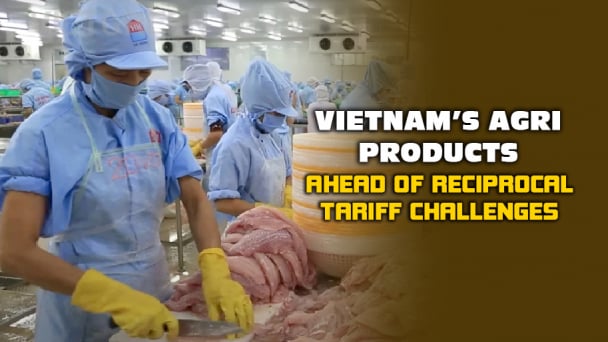
(VAN) Reciprocal tariffs are exerting pressure on U.S. exports, prompting Vietnamese firms to shift their focus to Muslim markets, Thailand, and Brazil.
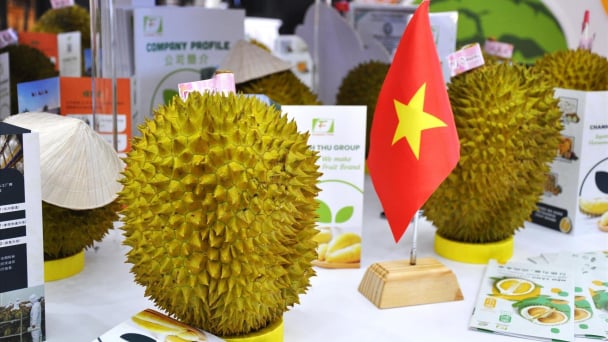
(VAN) A free booth for two years at Xinfadi, Beijing's largest wholesale market, will be allocated to Vietnam's agricultural products.
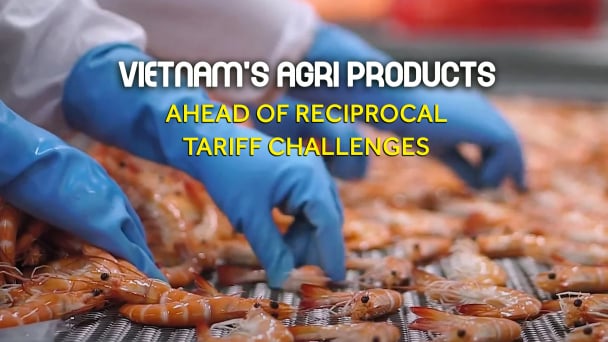
(VAN) Vietnamese shrimp exporters are actively looking for alternative markets and accelerating shipments to the United States in response to the pressure of impending reciprocal tariffs. This is occurring during a temporary tariff suspension.

(VAN) The import-export turnover between Vietnam and Singapore rose amid a trade rebound, with machinery, electrical equipment, and fuels making up the majority of the transaction value.

(VAN) Director General of the General Administration of Customs of China, Ms. Sun Mai Jun, has pledged to implement measures that will ease the import process for Vietnamese agricultural products.

(VAN) Although Vietnam is still increasing its coffee exports, the industry is currently in the process of determining market strategies in response to the U.S. imposition of reciprocal tariffs.

(VAN) With rising demand in Muslim-majority countries, Halal certification is becoming a critical passport for Vietnamese agricultural products seeking sustainable market access and consumer trust in the Middle East and Africa.